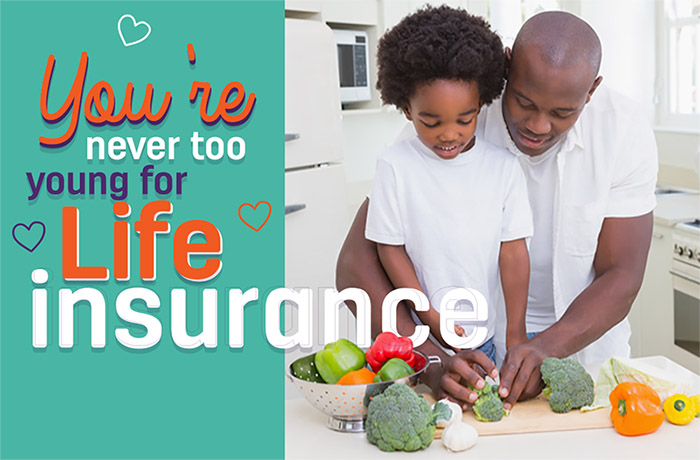
For young people starting out in the world of work, planning for death, disability or a serious illness is not exactly top of mind, and this is supported by the comparatively low volume of 20 to 30-year-old clients who have insurance (versus their savvier 30 to 40-year-old counterparts), says Hollard Life’s Head of Product and Pricing, Ryan Chegwidden.
Worryingly, it’s a growing trend, as young professionals opt to focus on their careers and push out big life decisions, such as marriage and starting families, in the mistaken belief that it’s also okay for protection against financial risk to drop down the priority list.
If you’re young, free and single, you may have fewer responsibilities, but the need to protect yourself from the financial implications of a serious illness, disability – or even death – is no less important than they are for older people with dependents. That becomes crystal clear when you consider the implications of an independent professional in their twenties being permanently disabled in an accident and having to sustain themselves for the next 40 years without a salary.
Hollard Life provides some valuable considerations for young people embarking on their first financial planning journey:
Speak to a professional
Avoid the inherent pitfalls of a do-it-yourself approach and get the experience, advice and product knowledge of a professional financial advisor to ensure your money is well-spent on the best cover for your needs.
Check whether your employee benefits will be enough (They very rarely are)
Many companies offer cover as part of their employee benefits packages, but group-scheme policies don’t usually provide anywhere close to the benefits of an individually rated policy. Ask your advisor to assess whether the cover you have offers the best value for money and is appropriate for your unique needs.
If you’re old enough to earn an income, you’re old enough to be insured
The real challenge in living with a disability is being able to provide a future income for yourself. You might not have a bond or any major outstanding debts, but you’ll always have day-to-day living expenses to meet.
Critical illnesses happen to young people too
If you develop a serious illness such as cancer or heart disease and don’t already have critical illness cover, you may not be able to get it in future. Treatment and care are expensive and there are often other unexpected costs, so it’s essential to get critical illness cover when you’re young and when it’s cheapest and easiest to acquire.
Prioritise your financial plan
Many people struggle with daily living costs and rent. Groceries and utility bills will always take precedence over paying for life insurance, but it can be done. Ask your financial advisor to help you prioritise what you absolutely must have, and shop around for the best prices and benefits for your needs.
“No one likes to dwell on the possibility of suffering poor health, or dying, but the reality is that while young people are building their asset base, they have fewer savings and more expenses than older people. This means they need coverage more than they realise,” says Ryan. “Premiums will also be lower than if they take out cover later in life. Our advice is to take out life and other cover sooner rather than later.”